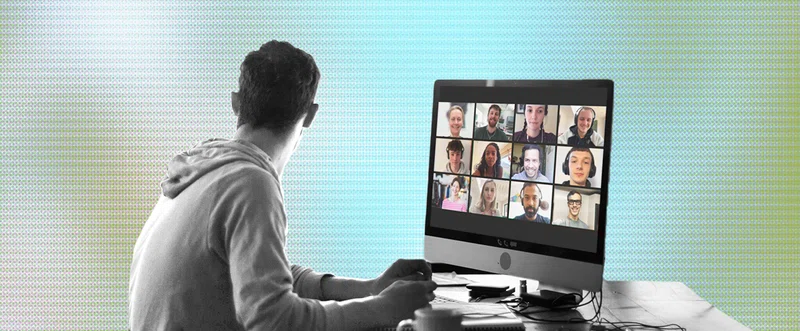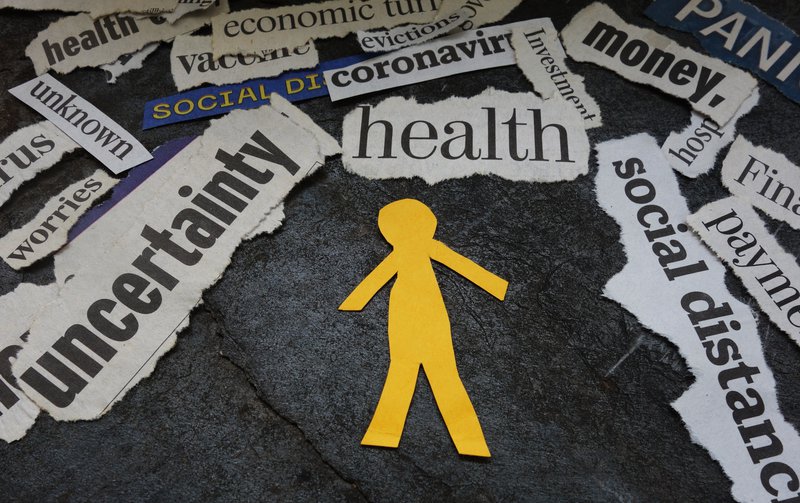


Outcomes Research
Texas interview study explores COVID-19 effects on college students’ mental health
Houston Methodist researchers studied COVID-19 effects on the mental health of college students via PSS 10 - a 10 question virtual questionnaire and found moderate stress levels.

College students have traditionally been considered a vulnerable demographic regarding mental health issues. Being mentally sound and having excellent mental health is crucial for academic performance and higher education. Even before the COVID-19 pandemic, mental health has been a key factor in determining academic success. Anxiety, depression, worry, and suicidal thoughts can prevent some college students from focusing on their studies. According to the American Psychology Association, there are rising mental health concerns amongst campus college students. These factors are contributing to a growing mental health crisis among this vulnerable demographic.
According to the 2019 Annual Report of the Center for Collegiate Mental Health, anxiety is the most frequent issue among students who completed the Counseling Center Assessment of Psychological Symptoms. Anxiety disorders are also reported to be the most prevalent diagnosis of students that pursue counseling services in universities, according to clinicians. The COVID-19 pandemic has taken a toll on the mental health of several different populations and highlighted these mental health issues. This study focused specifically on college students and the effect of the pandemic on their mental health.

Future work is needed to use a stratified nationwide sample across wider disciplines to verify and amend these findings. Future work could focus on more deeply probing the relationships between various coping mechanisms and stressors. Additionally, further study is needed to determine the effects of the pandemic on students’ mental health and well-being in its later phases beyond the peak period.

Farzan Sasangohar, PhD
Assistant Professor at the
Houston Methodist Center
for Outcomes Research
A semi-structured interview study of 195 college students at the Texas A&M University was conducted by Farzan Sasangohar, PhD, assistant professor at the Houston Methodist Center for Outcomes Research to evaluate the effects of the COVID-19 pandemic on mental health, both quantitatively and qualitatively. Moreover, this study purported to identify the major COVID-19 related stressors as they relate to mental health deterioration as well as coping mechanisms among college students. The rationale behind this study was the surge in anxiety disorders among college students nationally over the past several years. Categorically, Texas A&M University has seen over the last eight years an escalation in the number of students seeking out counseling services for anxiety. This number exceeded 50 percent in 2018.

Farzan Sasangohar, PhDAssistant Professor at the Houston Methodist Center for Outcomes Research
In the study, interview data was collected throughout April 2020, a month after the Texas statewide stay-at-home order. The Texas A& M University campus was closed from March 23, 2020, and all classes were held virtually for the remainder of the academic year. Undergraduate student researchers recruited participants from a large student population at this university via email, text messaging, and snowball sampling. The inclusion criterion was prior enrollment at the undergraduate level in the university at the time of interviews. Participation was voluntary and participants were not compensated. The average age of participants was 20.7, most participants were female, and 60 percent of the study population was comprised of engineering majors. However, the study population also included students in agriculture and life science, liberal arts, architecture, business management, education and human development, school of public health, veterinary medicine and biomedical sciences, and others.
Undergraduate student researchers conducted and recorded interviews that employed the Perceived Stress Scale-10 (PSS) and structured interview questions on 12 academic, health, and life-related aspects to understand their stressors and coping mechanisms. They were also asked questions including whether they encountered an increase, decrease, or no change in their COVID-related stress levels and what effect they thought COVID-19 may be having on their peer’s stress levels.
According to Sasangohar, the data suggest moderate levels of perceived stress among participants. Out of the 195 participants, 71 percent indicated that their stress and anxiety levels were enhanced owing to the COVID-19 pandemic. Stress levels were reported to have remained the same in 20 percent and decreased in the remaining 9 percent. The study suggests that the COVID-19 pandemic caused a moderate increase in students’ stress levels and negatively affected several outcomes related to their well-being, academic performance, health and lifestyle.

The analyses revealed that COVID-19 raised concerns for one’s health and health of loved ones in 91 percent of participants; difficulty concentrating on academics in 89 percent; sleep pattern disruption in 86 percent; eating pattern disruption in 70 percent; financial hardships in 59 percent; depression in 44 percent; and suicidal thoughts in 8 percent. The pre-pandemic baseline of suicidal ideation is 3 to 7 percent among college students. However, there appears to be a bigger upsurge in depression owing to COVID-19 since only 29 to 38 percent of college students reported having depressive thoughts pre-pandemic according to other studies. Higher probabilities of depression in the current study are similar to COVID-related studies from China.
This study offers several perspectives of college students who elaborated on their experiences of stress. However, this study has limitations. For instance, the study had a small sample size and only represented one time point during the pandemic. Second, the sample size represents a student population from one large Texas university and therefore, results may not be representative of all college student cohorts. Furthermore, 60 percent of the study population was engineering students. Lastly, the same students were not interviewed pre-pandemic. Hence, there is no negative control.
As mentioned earlier, 71 percent of participants in the interview study reported that they experienced greater levels of COVID-related stress. Out of this sub-group, 5 percent (of 195) used counseling services. Coping mechanisms that the students used included mostly maladaptive behaviors including disengagement and denial. These kinds of maladaptive behaviors are indicators of ensuing depression. Participants also expressed a lack of faith in counseling services and low levels of comfort in sharing their mental health challenges.
The COVID-19 pandemic has created significant levels of psychological stress among many population demographics, particularly college students. As the pandemic continues in many parts of the world, the population is still under the effects of this global phenomenon. The mental health of this vulnerable demographic of college students needs to be monitored carefully. Concerns related to mental health need to be immediately addressed to minimize the likelihood of secondary complications such as depression and suicides among college students.
Changwon Son, Sudeep Hegde, BEng, Alec Smith, Xiaomei Wang and Farzan Sasangohar. Effects of COVID-19 on College Students’ Mental Health in the United States: Interview Survey Study. Journal of Medical Internet Research.2020 Sep 3;22(9):e21279. doi:10.2196/21279.
This work was partly funded by a Texas A&M University President’s Excellence (X-Grant) award.
Abanti Chattopadhyay, PhD, June 2021







